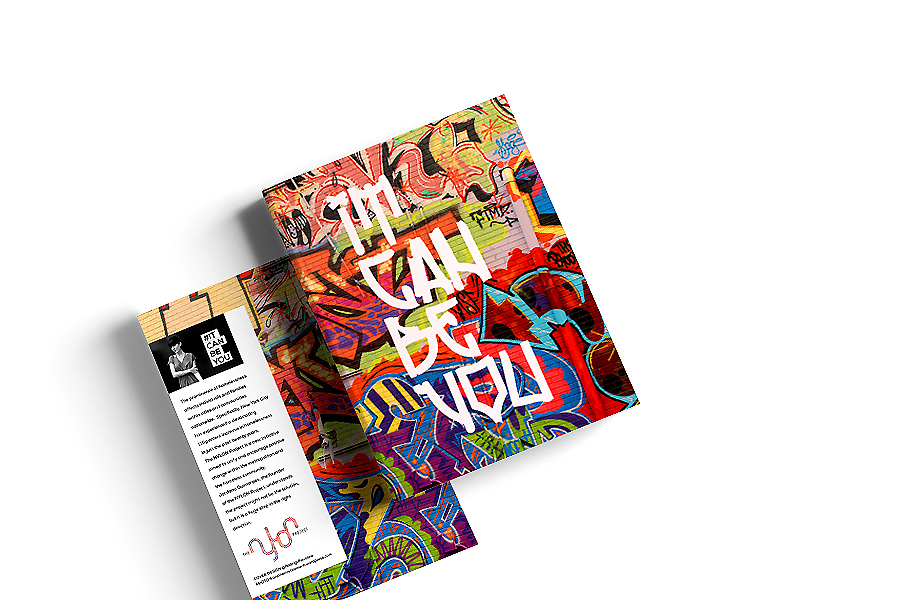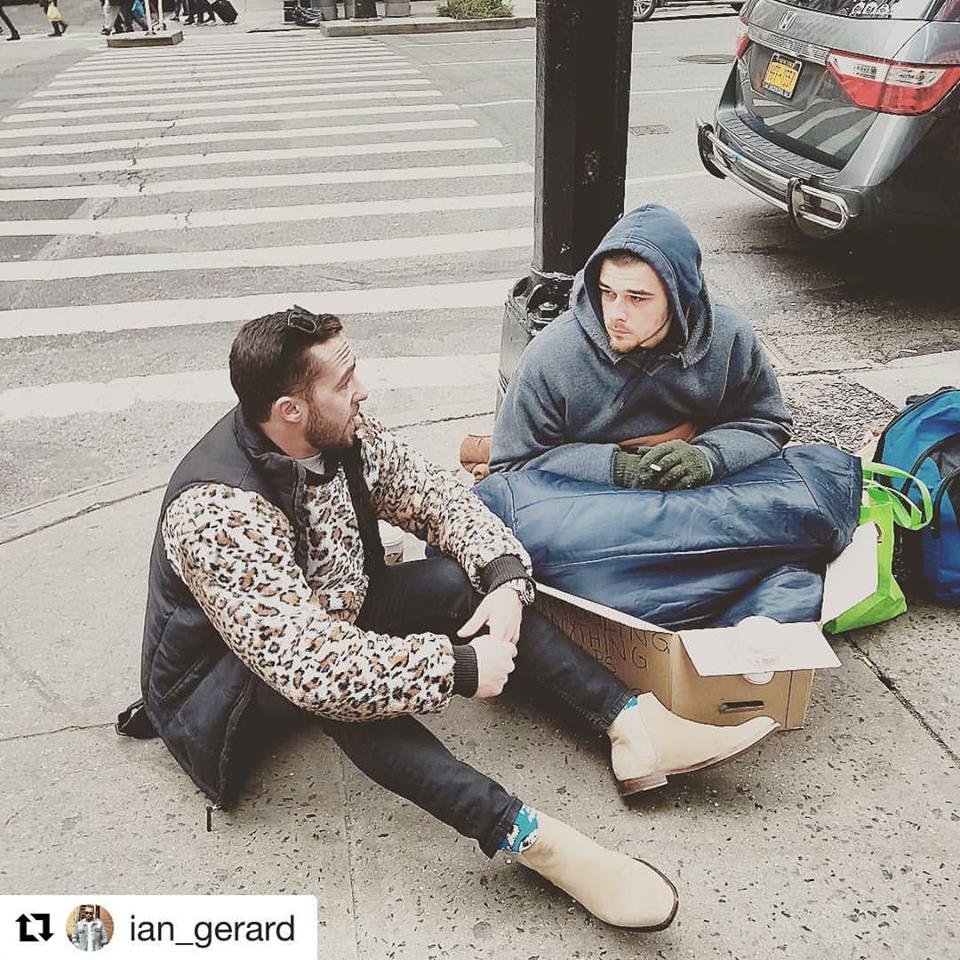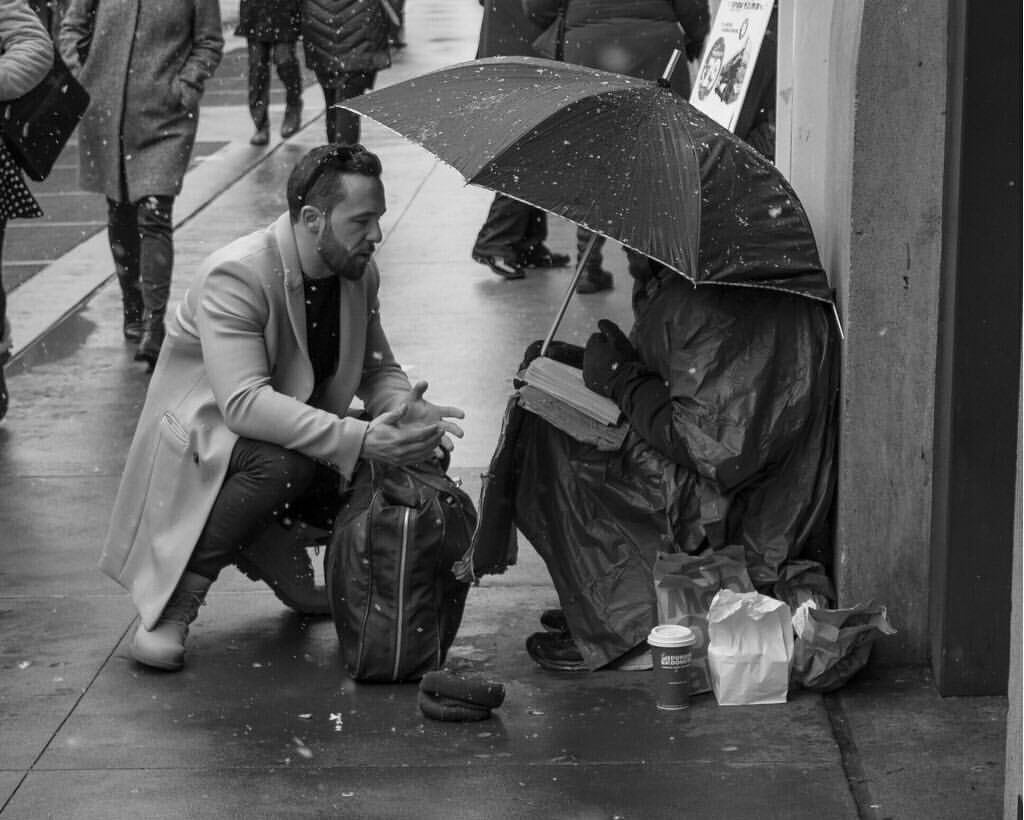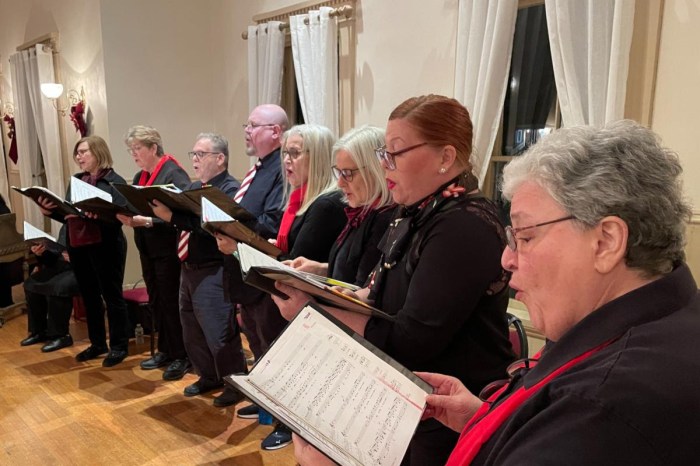Long Island City resident Jordana Guimaraes is using her connections in the fashion and entertainment industry to foster more compassion toward the city’s homeless population.
Guimaraes, who founded ACL PR & Marketing, said she felt compelled to help people less fortunate than her from a young age. The publicist grew up in Brazil where the poverty was “unparalleled,” she said.
“It was difficult for me even when was 2, 3, 4 years old. I would go out on the streets with my mom and we’d be walking to the supermarket and approached by so many people that were homeless,” she said. “I thought, how could I have everything and this person have nothing?’”
Guimaraes, who started her career working in press offices for large fashion brands, decided to use her talents to help emerging brands. After working as a freelancer, she decided to start ACL PR & Marketing two years ago.
“My mom and my dad always made a joke that I would never have money because even when I started working and making money I would give it all away,” she said. “It was something that was innate in me.”
In January 2017, Guimaraes began to brainstorm how her connections in the fashion and entertainment world could help her put “a face and a name to the homeless community.”

She began to do research on the city’s homeless population and was shocked by the number of people living below the poverty line. According to a report by the NYU Furman Center, approximately 1.7 million New Yorkers lived below the poverty line from 2011 through 2015.
To combat the stereotypes associated with homelessness, Guimaraes interviewed 75 homeless New Yorkers and 75 influencers like model Khoudia Diop and “The Bachelorette” contestant Eric Bigger to find commonalities in each of their stories.
“It Can Be You” will be a 75-page book that features interviews and accompanying photos. The stories of the influencers and homeless New Yorkers will be placed side by side “to showcase how someone who is not homeless today and is very famous and doing very well for themselves and someone who is homeless could have had the some issues in life,” she said.
Last February, the Long Island City resident started a GoFundMe page and raised $10,000 to provide hot meals to 1,500 homeless New Yorkers. During this event, she spoke to them about the struggles they faced.
The New Yorkers she met were tackling a myriad of problems, including mental health and addiction issues and also facing problems that were surprising to Guimaraes.
She met several teenagers who had been kicked out of their homes by parents dealing with drug addiction or other issues.
“[Their parents] end up kicking them out and [the teenagers] don’t have the money to sustain a life of their own,” she said.
The most surprising issue shared by several people in the shelter system, she said, were the people who became homeless after struggling to pay off medical bills.
“What shocked me the most I think is health insurance,” she said. “A lot of of people get very ill or have an illness that needs to be treated. The bill came because they didn’t have health insurance and they ended up having a lot of different financial difficulties and ended up losing their house.That’s something we should never have to worry about.”
Guimaraes also met several people coping with mental illness. A man she met at the event was diagnosed with bipolar disorder and was struggling to cope. Though he was able to find a job after moving into a homeless shelter, the position pays only $7 an hour, making it difficult for him to save up for an apartment or other essentials.
“The big problem with homeless people is that people now just ignore them,” she said. “They’ve become invisible because there are so many of them.”
New York City has struggled to prevent the homeless population from rising. In October 2017, there were a reported 62,963 homeless people sleeping in the city’s shelter system. Mayor Bill de Blasio announced an initiative called Turning the Tide on Homelessness in February 2017, which aims to keep more New Yorkers in their homes and provide services to those who aren’t able to avoid the shelter system.
The book is only one part of Guimaraes’ larger initiative to help the homeless, called The Nylon Project. She aims to turn the project into a “flagship for awareness for all of these different foundations that sometimes homeless people don’t even know exist.”
She’s partnering with Urban Pathways, a nonprofit that helps homeless New Yorkers move into permanent housing, Alexandria House, a transitional residence for women and children in Los Angeles, and other organizations catering to homeless people.
Guimaraes is hoping to expand The Nylon Project to cities and countries around the world. Half of the proceeds from “It Can Be You” will go directly to these organizations and 50 percent will help run other Nylon Project initiatives.
“I think that the more people this book reaches, especially the millennials who look up to these influencers, we’re really just hoping that more people become compassionate about this cause,” she said.
“It Can Be You” does not have an official release date but will be available to purchase sometime in February.
For more information, visit www.thenylonproject1.com or the project’s Facebook and Instagram pages @thenylonproject1.





































